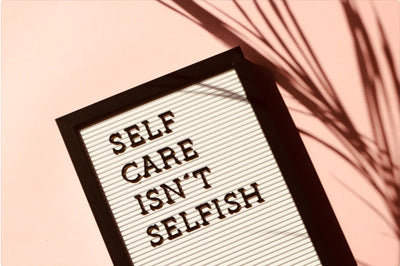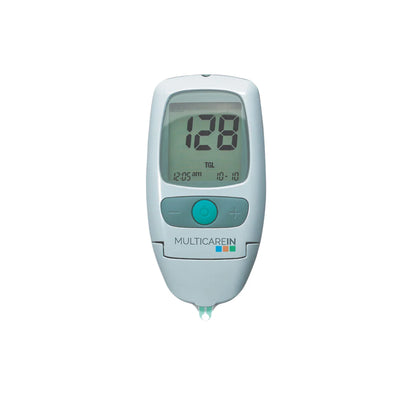Blogs
Prioritize mental well-being with insights and support, because a healthy mind is the foundation for a fulfilling life.

Simple Steps to Managing Grief
27.12.2023
The state funeral for Her Majesty Queen Elizabeth II is approaching and, as the world looks on, many people have been taken by surprise at how deeply they have been affected by the news of her passing.
The death of such a public figure can often trigger unexpected feelings of grief and personal loss. No matter your feelings or relationship towards the monarchy, the death of the Queen may have affected you, or someone you know, in a surprisingly deep way, bringing on feelings of loss, pain, regret and anxiety.
When feelings of loss and grief happen, it can be useful to have coping tools to hand to help you manage your emotions and be able to carry on with everyday life.
Find Ways to Express Your Grief
We’ve moved on from the ’stiff upper lip’ times of old and, thankfully, we now understand that not recognising our feelings or allowing ourselves to experience them can have a hugely detrimental effect to our long, lasting mental health.
Grief can result in feelings of sadness, confusion, anger, guilt and despair. All of these are valid responses so be kind to yourself if and when they (or others) arise. Spend time with your emotions and do your best to not run away from them, no matter how painful they may be.
‘Owning’ our grief and allowing it to exist can be a very powerful tool in learning how to manage it. Actively grieving, by taking time each day to purposefully sit with your feelings - maybe writing them down or recording how you feel - can have a very positive effect on your relationship and response to the loss you’re experiencing.
Don’t put a time limit on your grief
Grief is almost always inevitable after a major loss, but how long it will stay with you is absolutely unknown. Don’t be tempted to put a deadline on when you’ll ‘feel better’ as this will only lead to disappointment, upset or even depression.
Grief isn’t a straight line journey. It comes in waves, can disappear and reappear. It does, more often, lessen with time but don’t put any pressure on it to do so in a time that suits you as this will only backfire.
Take Care of Your Own Self
While you’re dealing with the mental and emotional responses to your loss, be sure to keep an eye on your physical self too.
Eat well, exercise and stay active, and try to create as good a sleep routine as you can manage.
Grieving can be physically very draining, you’ll feel tired, you might struggle to sleep (or be sleeping too much) and you may well lose your appetite for a while. If you can actively try to keep these daily agendas on track by eating good nutritious meals and getting fresh air and movement into your day, you should find that your sleep pattern will be helped too. Taking care of your physical self will give you the strength to deal with the emotional stresses you’re going through.
Talk to the Right People
If you feel that you need professional support then do seek out some grief support groups or specialists where you can specifically talk about the feelings you’re going through. Your GP or local health centre will be able to help you find somewhere suitable.
However, don’t feel when you’re grieving that you must only surround yourself with people who can talk to you about your grief. While it’s hugely important to share your feelings, it’s equally important to be allowed to talk about ‘normal’ things too. Don’t feel guilty if, actually, you really want to talk about a sporting event that’s happening, or about your child’s painting or a programme you’ve recently seen on television.
It’s absolutely ok to spend time with friends or family and not talk about your loss. Spending time with others is very important, and feeling connected with people who care is often as comforting as talking about your feelings can be. There is more to grief than sadness.
Need more help? We're always here to help so get in touch today.
For all your Medical and Homecare supplies give us a call at Mediworld.
We have over 40 years experience in medical, surgical, mobility and home health supplies and we're always on hand to chat if you need support or advice and don't forget to read our other great health blogs!
September 2022
Learn More Now

Get Outdoors For Better Mental Health
27.12.2023
A good walk, along with time spent in the great outdoors, almost always makes you feel energised and well. Both walking and connecting with nature have been proved to have many benefits for our mental wellbeing. So combining the two is a great way to support your health and wellbeing.
Why Is Walking Outdoors Good For Us?
For most people, walking is one of the best and most affordable forms of exercise. It can be easily incorporated into our daily lives and needs no expensive equipment or training.
But the benefits of taking a good walk proportionally outweigh the effort involved and they’re intrinsically linked to better mental and physical health.
When you take a regular walk you will:
Improve your cardiovascular system
Reduce anxiety, stress and even symptoms of depression
Set yourself up for better sleep quality
Increase your self-esteem, confidence and ability to cope with difficult scenarios
Work your body as it should be - we’re designed perfectly to walk long distances and by doing so we are allowing our bodies to build muscle & improve cartilage which will protect our joints.
The Benefits of Being in Nature
There is an abundance of research into why our relationship with nature leaves such a positive effect on our mental wellbeing.
Perhaps we’re simply designed to be in the great outdoors, but there is strong evidence to show that it is an incredibly powerful tool in improving our mental health problems including anxiety and depression, including the symptoms brought on by seasonally affected disorder.
Very much like walking, the benefits of time spent in nature far outweigh the effort involved.
Try Forest Bathing
Ever tried it? The Japanese have been forest bathing (shinrin yoku) for some time and it’s a cultural practice they swear by for its mental health benefits.
Never heard of it?
It’s a very simple method of spending quiet, calm time sitting or walking amongst trees and observing the nature around. It can be as simple as walking or engaging with any natural environment and consciously connecting with what’s around you - trees, shrubs, flowers, birds, animals, weather, etc.
Incorporating breathing deeply and calming your thoughts it’s a simple way for people of all ages and physical abilities to de-stress and boost their health and wellbeing in the most natural of ways.
The Best Place to Engage With Nature
While the world is full of incredible beaches, forests, mountains and rivers, the good news is that you don’t need to head to an exotic or far-flung location to reap the benefits.
Regularly tending to a window box or enjoying your local park can be enough to add significant improvements to your mental health.
In fact, if you’re unable to get outside at all, there is evidence to show that you can still lower your anxiety and enjoy the positive benefits of being in nature simply by looking at it through an open window. Even watching a nature programme or doing crafts/cooking with natural materials can engage the parts of the brain that will soak up the incredible powers of nature.
Now that’s amazing, and it’s something we can all do on a regular basis.
Need more help? We're always here to help so get in touch today.
For all your Medical, Homecare and Walking Aid supplies give us a call at Mediworld.
We have over 40 years experience in medical, surgical, mobility and home health supplies and we're always on hand to chat if you need support or advice and don't forget to read our other great health blogs!
February 2022
Learn More Now
Valentine's Day Self-Care
27.12.2023
With Valentine’s Day just around the corner, there’s never been a better time to show yourself, and your health, some proper self care. Is it time to take stock and commit to improving and maintaining your mind and body this Valentine’s Day? We think so.
While cupid’s arrow is flying, it’s a great time to set some ‘resolutions’ or affirmations for how you want to improve or take care of your health and wellbeing this year.
So, starting today, why not take a moment to plan and execute those small improvements that will help you live better throughout the rest of the year.
Get a check up
The covid-19 pandemic has, for some, made it more difficult to see your GP and as a result many individuals with severe medical conditions have gone undiagnosed and untreated. Although the waiting lists for operations are still at an all-time high, you should not be deterred from booking an appointment to discuss anything with your GP, practice nurse, dentist etc.
Routine screenings for cancers, heart conditions, asthma etc have been interrupted in the past 20 months but you should check with your local surgery or clinic whether you can book for anything you’re due.
Remember that early intervention and treatment is the most successful way to treat any condition so now is the time to speak to your medical professional about any niggles or issues you might be having.
Do Some Home-Checks
If you’re suffering from a condition that requires regular health checks you might be able to run some of those checks at home, to save you some of the time and pressure of booking an appointment at your local surgery.
With a condition like high blood pressure there is substantial evidence to suggest that the use of a home blood pressure monitor can actually give a better indication of blood pressure than being tested in a clinical setting. Regular home testing is more cost effective for the NHS, it reduces the risk of heart attacks and strokes, and it’s much easier for you, the patient, in the long term.
Similarly with diabetes, regular testing with a glucose monitoring system is the key to keeping your condition under control.
Perhaps now is the time to invest in a testing kit to streamline that aspect of your health care - and show yourself some self-care at the same time!
Daily Self-Care
Self-care is, simply, the practice of taking positive action to preserve or improve your own mental and physical health. And the best bit is that while self care doesn’t need to take a lot of time or money, it can hugely improve your day to day life.
Finding what works for you might take a bit of time but it might be that you simply need to stop for 20 minutes every morning to practice some breathing techniques in order to improve your mood/energy each day. Perhaps you need to seek therapy, remove stress from your life or pledge to improve your diet.
Regularly taking time to engage in simple joys can make the world of difference in your mental and physical outlook.
Seek Help Online
We’re lucky to be living in a time where we can access so much help and information from the comfort of our own homes.
No matter what condition you might be struggling with you will find an online resource to match it. If you’re suffering from a medical condition (such as arthritis, mobility conditions, auto-immune disease, heart condition etc) there is a wealth of tools and chat groups online where you can find support, track your symptoms, and more.
Maybe now is the time to download that app, join that Facebook group or register with that charity which can help immensely with your situation.
So, this Valentine’s Day, why not take a moment to plan some health goals for the year and put in place some simple, self-care measures to improve your day to day life, maintain your condition and even make your mental and physical health all the better.
Need more help? We're always here to help so get in touch today.
For all your Medical and Homecare supplies give us a call at Mediworld.
We have over 40 years experience in medical, surgical, mobility and home health supplies and we're always on hand to chat if you need support or advice and don't forget to read our other great health blogs!
February 2022
Learn More Now

The Loneliness of the Covid 19 Pandemic
27.12.2023
It’s fair to say that we’re experiencing a loneliness epidemic in the UK. The covid-19 pandemic has significantly contributed to the levels of loneliness and the deterioration of mental & physical health across the country.
The irony is that if you’re feeling lonely - you’re not alone.
During the first UK lockdown 2.6 million adults reported that they regularly felt lonely, and over 7 million adults reported that their well-being and mental health had been adversely affected by the onset of being locked down. ** (ONS May 2020)
Almost 2 years later and the devastating impact of loneliness on many is still being felt.
Who is suffering the most?
Almost nobody has escaped at least moments of feeling isolated in these recent times. Loneliness and isolation have been experienced by people of all ages across every walk of life.
In the past 2 years we have all missed the everyday interactions that add colour and meaning to our days, from meeting friends and family for a meal, to congregating in religious/spiritual settings, schools, workplaces, travelling and enjoying community groups and activities.
The measures to control the virus, whilst necessary, have had a teal and devastating effect on our collective mental health and wellbeing. Lockdown measures have, unfortunately, deprived us of the very thing that makes us human and gives meaning to our lives - our physical connection with other people.
The elderly & those over 65 have perhaps been the most affected, due to their vulnerable status in relation to the virus itself. But let’s not forget the generation in their 20’s, many of whom have been working from home in cramped and unsuitable conditions or have been left adrift by University courses being shifted to the virtual world while others have lost work at an all-important stage to progress in their careers.
Ill effects of loneliness
Doctors have known for some time that loneliness is bad for our mental health and can lead to mental health problems like depression, stress, anxiety, and a lack of confidence - which in itself can prevent us from improving our situation.
There is now growing evidence that social isolation can have a detrimental impact on our physical ill health as well.
Doctors increasingly believe that loneliness can lead to higher inflammation levels in the body that can trigger a number of chronic health conditions and early death.
It’s fair to say that reducing loneliness would be beneficial to health.
Things to try to help with loneliness
The good news is that people can recover from loneliness. It isn't a life-long condition.
If you’re feeling lonely right now, taking just one small, positive step to engage with others outside of your own internal world will have an immediate effect on improving your situation.
Don’t try to solve everything at once - but perhaps try these three simple steps.
Keep in touch with someone you love - Send a text/email or pick up the phone today to just one person who will lift your mood. If you don’t feel you have someone to contact, maybe just strike up a conversation with the staff in your local coffee shop. If you struggle to do this, book an appointment with your GP for a conversation and for support.
Join a group - Feeling lonely can make you anxious about putting yourself out there and exposing the fact that you are feeling isolated. So this might feel like a difficult thing to do. But there are lots of virtual/online groups around - for example there are thousands of Facebook groups around where you can chat to like minded people with similar interests to you without any pressure to meet in real life.
Help others - One way to get yourself out and to lift your spirits is by helping others. Volunteer for just a few hours a week at your local foodbank or charity. Perhaps you might like to walk a neighbour’s dog or cook for a family you know in your street? You never know what it could lead to, but it will almost certainly engage you in the human interaction that’s missing from your life right now.
Support
You may feel that you cannot put these steps into action. That is perfectly fine. Be patient, with yourself. Tackling loneliness and the negative emotions that go with it can and will take time. But small, positive steps will take you in the right direction.
If you feel you would benefit from more support, information is available on the NHS Let's Talk Loneliness Website.
We're always here to help so get in touch today.
For all your Medical and Homecare supplies give us a call at Mediworld.
We have over 40 years experience in medical, surgical, mobility and home health supplies and we're always on hand to chat if you need support or advice and don't forget to read our other great health blogs!
January 2022
Learn More Now

5 Ways to Observe Mental Health while Working from Home
18.07.2024
The most recent government announcement regarding the Covid-19 pandemic means it’s looking likely that, for those of us who can, we will be working from home for the foreseeable few months at least. A recent Nuffield Health survey revealed that 80% of Brits feel working from home has had a negative impact on their mental health.
‘Not being in the physical presence of colleagues means many people feel unable to take a break and step away from their workstations, with over a third (36%) of home workers feeling as though they always have to be at their computer to respond quickly. This could be contributing to the higher levels of anxiety and stress people are reporting working from home rather than from their usual place of work’.
So how do we best look after our Mental Health when working alone from home?
Take a break
Scheduling regular breaks throughout your day is one of the most important entries you can make in your to-do list each morning. In your usual office environment you might take several work breaks to have a cuppa and a short chat with a colleague, so allow yourself to do this while you’re working from home.
Make sure if you stop for a tea break, or even lunch, that you drink it away from your workstation. Perhaps look out of the window or if it’s nice sit outside. Just 5 or 10 minutes of stepping away from your desk can make a huge difference to your ability to focus on your work when you return.
Separate Work life from Home life
Create a clear divide between your working day and home life. Try to find a way to mark the end of the working day. For example shutting down your laptop rather than leaving it on or open, switching your work phone off or closing the door on the room where you’ve been working. And if you must check-in after the end of the working day, try assigning a specific short period of time to do so rather than doing it continuously. Creating that mental headspace will give you the capacity to unwind and prepare yourself for the next day of work and will improve your work life balance.
Connect with your colleagues
Not being able to easily chat with work colleagues is a huge contributing factor to the mental health issues many people are experiencing while working from home.
So, if you notice that you’re struggling, don’t be afraid to reach out and make a connection with a colleague, friend or family member each day.
Don’t forget that communication during lockdown doesn’t always have to be via a video call! Hearing someone’s voice is just as good a way to connect with someone as seeing them is, so if you’re feeling completely ‘zoomed out’ just pick up the phone for a chat instead if you can.
Practice Self Care
Be kind to yourself and try not to allow too much pressure to always be on ‘top form’ to creep in. Regularly practice some relaxation techniques like meditation and mindful breathing or download a mindfulness app to use at set times each day.
Exercise is also a great way to help reduce stress and anxiety as well as helping towards improving your mental wellbeing.
The best thing about exercise is that you almost certainly can’t do it at your desk! So schedule in a lunchtime walk, early morning Hiit session or some evening yoga to your working day. This will help to boost endorphins and give you both physical and mental energy.
Get some sleep
We all know that lack of sleep will make you feel more tired, stressed, less energised and more anxious. Yet, it’s also true that anxiety and stress can, in turn, lead to an inability to sleep well.
So make sure you have a good sleep and bedtime routine. Switch off your devices at least 2 hours before bedtime and use this time to start preparing yourself for sleep. Read, have a bath, do some gentle exercise, and generally begin to wind down and switch off mentally from your day.
Practicing a good sleep routine takes work but with time it will pay off and you will begin to feel enormously positive benefits to your mental and physical health, and your feelings towards working at home, as a result.
Need more help? We're always here to help so get in touch today.
For all your Medical and Homecare supplies give us a call at Mediworld.
We have over 40 years experience in medical, surgical, mobility and home health supplies and we're always on hand to chat if you need support or advice. Follow us on Twitter and Facebook and don't forget to read our other great health blogs!
Learn More Now

5 Tips For Spending Christmas Alone
27.12.2023
We all know that, because of the Covid pandemic, this Christmas is going to be somewhat different from those gone by. In ‘normal’ times hundreds of thousands of people spend Christmas alone but in 2020 those figures are likely to sky-rocket with many of us isolating due to covid symptoms or to avoid unnecessary travel or contact.But being unable to visit family and friends this Christmas doesn’t mean we can’t plan to make the day special - albeit in a different way. So, rather than dwelling on what you’re missing out on, start putting in place some activities and ideas that will help to make the time pass and make it a Christmas to remember, for all the right reasons!
Downgrade your usual expectations
Once you’ve consoled yourself with the fact that you’ll be alone this Christmas you can start to shift your assumptions about what to expect. There’s no shame in being alone, in fact it might even be a welcome change to the usual ‘discussions’ regarding who cooks the turkey and worrying about who Uncle Fred will upset this year!
Be Proactive
Make a plan for yourself - and make it all about you. It’s time to accept that this year will be different and make the change a positive one for you, and you alone. If you sit around waiting for others to make sure you’re going to have a nice time you’ll very likely be sorely disappointed.Buy the food you love - for once this year it doesn’t have to resemble a Christmas dinner plate if that’s not your favourite meal. Treat yourself to something lovely - perhaps a good book you’ve been hoping to read or that cashmere jumper you’ve been coveting. Sleep until noon, binge on your favourite films, podcasts, radio programmes. Do whatever makes you happy.This year is your year to do whatever you enjoy. We all hope to be back to normal next year, so take the time to make this year special.
Get some Fresh Air
One way to get through the day is to break it up with a trip outside. Go out and do something productive, rather than spending the whole day indoors feeling sluggish and sad, find something that fits with your mental and physical health. So perhaps you need to burn off some energy with a walk, cycle or a run. Often there is a lovely, friendly atmosphere outside on Christmas day and you might find yourself saying hello to strangers and receiving some festive greetings that will boost your mood. Enjoy seeing the children on their new bikes and roller skates, soak up some Vitamin D and perhaps put a spring in your festive step.If you would prefer something more meditative or spiritual, you might look for a socially distanced church service, which would be a lovely way to be in the presence of others and to take time to practice some gratefulness for all the positive things in your life. Because, remember, there really are many good things to be thankful for.
Volunteer
Doing good and looking out for others seem like very fitting ways to spend the Christmas period. Added to that, put simply, volunteering is very good for you. Giving your time to help others has been shown to improve both your mental and physical wellbeing. Your immune system is boosted, brain function improves and the social benefits can reach well beyond the interaction you encounter during your volunteering ‘shift’.Despite Covid-19 there are plenty of organisations seeking help to support their work throughout the festive season.Offering to help at your local Foodbank or to support an elderly or less able person in your community can be a hugely rewarding way to spend your Christmas day, and could stave off the loneliness you and others may be feeling. Perhaps contact your local library, councillors or church now to find out what services might be looking for support and volunteers.
Reach out for Help
Christmas can be an overwhelmingly difficult time and it’s ok to feel the extra pressure this year. Many people will have felt an enormous impact on their mental health this year and that may feel more acute at this time of year when you would normally expect to see friends and family. If you’re struggling to see any positives or feel like you need some extra support, charities like Mind, The Samaritans, Re-engage, and The Campaign to End Loneliness, have helplines (some are 24/7) and dedicated staff who are there to help and support you with through this time.Need more support? We're always here to help.For all your Medical and Homecare supplies give us a call at Mediworld.We have over 40 years experience in medical, surgical and home health supplies and we're always on hand to chat if you need support or advice. Follow us on Twitter and Facebook.
Learn More Now

World Mental Health Day 2020
27.12.2023
10 ways to look after your mental health
It’s World Mental Health Day on October 10th - a really important opportunity for us to take a stock check of our own mental health and to remember to look out for those around us and to support anyone who's struggling with their own mental health. The theme for this year is 'Mental Health for All' - a timely notion for this difficult era where the effects of the Global Pandemic Covid - 19 are affecting more and more of us in both our physical and mental health.
This week's blog is inspired and informed by the World Mental Health Organisation and focuses on ways to keep our own mental health in check at all stages in our life.
It's really important to take care of yourself and to get the most from life. Below are 10 practical ways to look after your mental health. Making simple changes to how you live doesn’t need to cost a fortune or take up loads of time. Anyone can follow this advice. Why not start today?
1. Talk about your feelings
Talking about your feelings can help you stay in good mental health and deal with times when you feel troubled.
2. Keep active
Regular exercise can boost your self-esteem and can help you concentrate, sleep, and feel better. Exercise keeps the brain and your other vital organs healthy, and is also a significant benefit towards improving your mental health.
3. Eat well
Your brain needs a mix of nutrients in order to stay healthy and function well, just like the other organs in your body. A diet that’s good for your physical health is also good for your mental health.
4. Drink sensibly
We often drink alcohol to change our mood. Some people drink to deal with fear or loneliness, but the effect is only temporary.
When the drink wears off, you feel worse because of the way the alcohol has affected your brain and the rest of your body. Drinking is not a good way to manage difficult feelings.
5. Keep in touch
There’s nothing better than catching up with someone face to face, but that’s not always possible. You can also give them a call, drop them a note, or chat to them online instead. Keep the lines of communication open: it’s good for you!
6. Ask for help
None of us are superhuman. We all sometimes get tired or overwhelmed by how we feel or when things don’t go to plan.
If things are getting too much for you and you feel you can’t cope, ask for help. Your family or friends may be able to offer practical help or a listening ear.
Local services are there to help you.
7. Take a break
A change of scene or a change of pace is good for your mental health.
It could be a five-minute pause from cleaning your kitchen, a half-hour lunch break at work, or a weekend exploring somewhere new. A few minutes can be enough to de-stress you. Give yourself some ‘me time’.
8. Do something you’re good at
What do you love doing? What activities can you lose yourself in? What did you love doing in the past?
Enjoying yourself can help beat stress. Doing an activity you enjoy probably means you’re good at it, and achieving something boosts your self-esteem
9. Accept who you are
We’re all different. It’s much healthier to accept that you’re unique than to wish you were more like someone else. Feeling good about yourself boosts your confidence to learn new skills, visit new places and make new friends. Good self-esteem helps you cope when life takes a difficult turn.
10. Care for others
‘Friends are really important… We help each other whenever we can, so it’s a two-way street, and supporting them uplifts me.’
Caring for others is often an important part of keeping up relationships with people close to you. It can even bring you closer together.
Need more support? We're always here to help.
For all your Medical and Homecare supplies give us a call at Mediworld.
We have over 40 years experience in medical, surgical and home health supplies and we're always on hand to chat if you need support or advice. Follow us on Twitter and Facebook.
Learn More Now




































